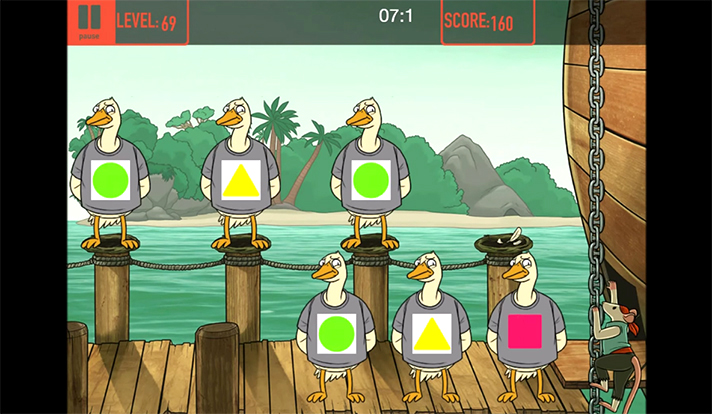
Yale researchers found their 5-minute brain-trainers helped students’ memory and retention of lessons.
You may have heard some coverage of a new Yale study on learning games boosting the learning of students, but the results offer a glimpse into a new role for learning games in the classroom.
Often, teachers use games as a sort-of prize for sticking with a lesson and some game developers and school reformers have thought of games as an alternative platform for actually deliver the lesson or curricular content, but the Yale research highlights another potential point at which to bring in the video game experience.
The study, published in Scientific Reports last month, concluded their examination of more than 500 second graders found proof of concept that, “short video games designed to activate specific neurocognitive processing systems can serve as brain warm-up calisthenics to improve cognitive performance immediately following the video game. Compared with procedures currently available to teachers, video-game cognitive priming can more directly establish internal states to facilitate learning, and make those states specific to the nature of the content material that follows.”
So these games, which were developed by the Yale researchers, served as essentially mental stretching exercises before the real teaching workout began.
The team found that by using short, 5-minute games before the full lesson, students did not only better on the training games over time but also did better on lessons that followed, but had nothing to do with the subject matter of the game.
“The program increases focus, self-control, and memory — cognitive skills essential for learning,” said Dr. Bruce Wexler, professor emeritus of psychiatry at Yale and lead author of the study. “And these are the exactly the cognitive skills affected by poverty, so we believe brain training programs like Activate can help reduce the achievement gaps related to poverty that are seen in schools across the country.”
The Yale work, though, also represents a marked shift from the research for research’s sake approach that has dogged many academic game makers. The new study was examining ACTIVATE, a product marketed by C8Sciences. That company is a startup that is marketing the Activate program to schools, as well as parents of students with ADHD. The program received a $4 million grant from the National Institutes of Health and this work is one of the first major pieces of research to result.
Although games as a kick start to learning are still fairly uncommon in schools, C8Science is banking on a mix of research and marketing to make the case that instead of blowing up the curriculum, schools could consider a jolt of game-based learning (and physical activity) ahead of the regular lesson.
